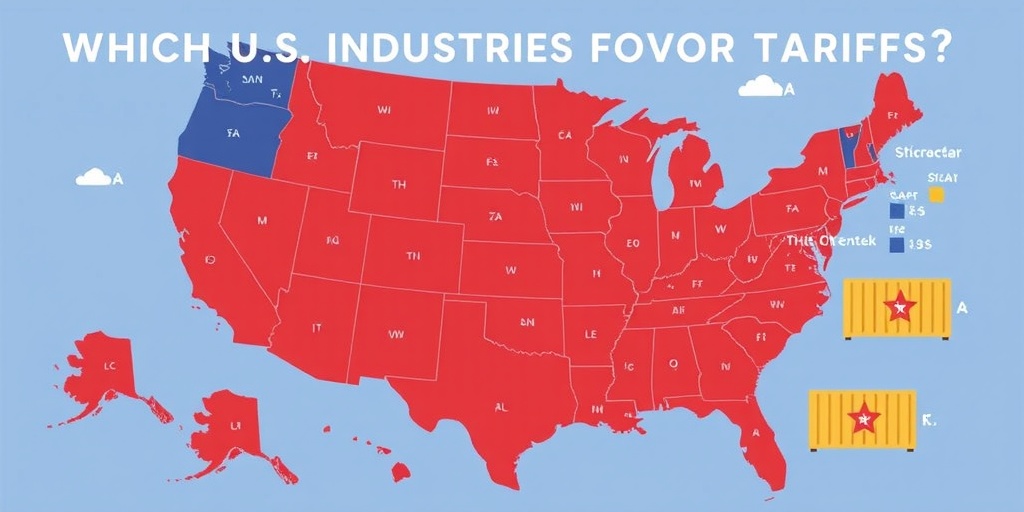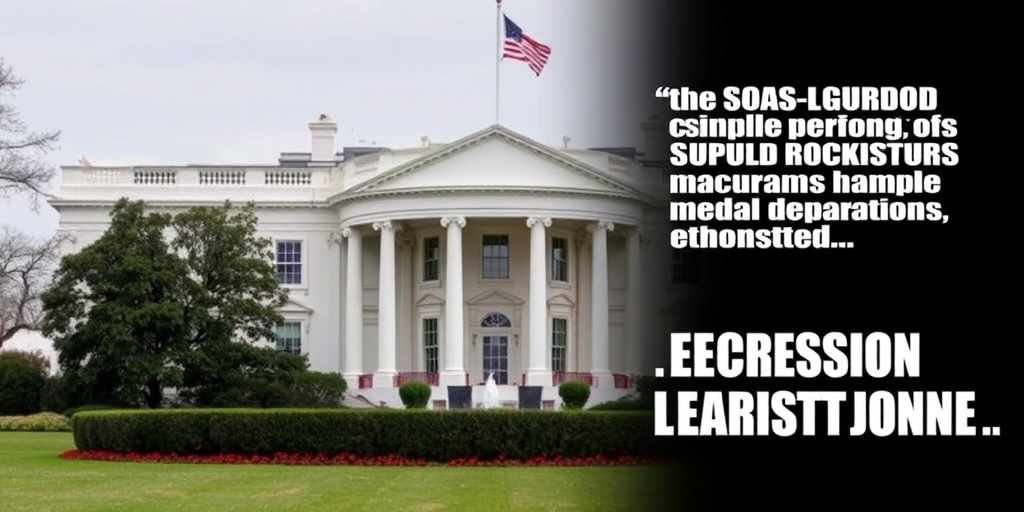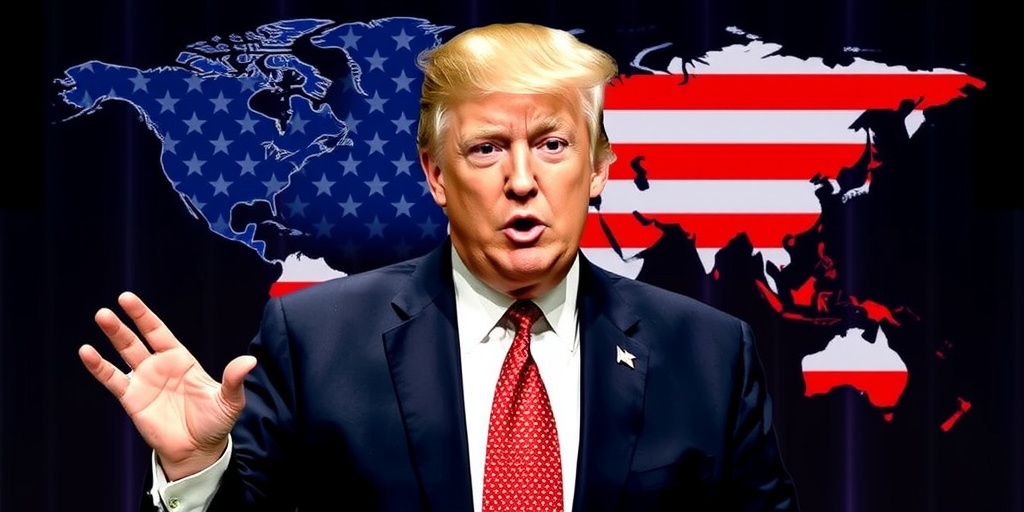Now Reading: Which U.S. Industries Favor Tariffs?
-
01
Which U.S. Industries Favor Tariffs?
Which U.S. Industries Favor Tariffs?

Title: U.S. Steel Tariffs Spark Mixed Reactions from Industry Leaders
In a significant move set to affect international trade, President Donald Trump announced this week that the United States will impose substantial tariffs on steel and aluminum imports, particularly targeting Canadian products. Currently, the U.S. sources more steel from Canada than any other nation, and these tariffs will considerably raise prices on these imports, leading to divided opinions among industry leaders and stakeholders.
Stephen Capone, the president of Capone Iron Corporation based in Rowley, Massachusetts, welcomes this decision. His company, which specializes in fabricating steel products such as stairs, handrails, and gratings, has been struggling to compete against Canadian steel companies that have flooded the New England market with lower-cost products. Capone asserts, “No matter how low we bid, they can underbid us on any job. They’re decimating our market.” The tariffs, he believes, could level the playing field and allow American firms to secure business that has long eluded them due to outside competition.
However, the tariffs have prompted concerns from other corners of the business world. Companies like Ford Motor Company have expressed worries regarding potential consequences, with CEO Jim Farley stating last month that the tariffs could “blow a hole” in the U.S. automotive sector. Retailers have also alerted that these tariffs may result in increased costs for consumers as companies could pass on the higher expenses of steel and aluminum to their customers.
Despite these concerns, support for Trump’s trade policies persists among certain business leaders. Many executives from the American steel and aluminum sectors argue that their industries have suffered due to what they perceive as unfair trade practices. They contend that foreign competitors, especially those benefiting from government subsidies, have underpriced domestic products. Advocates for the tariffs believe that—when implemented without loopholes—such measures can encourage investment back into the U.S. manufacturing sector.
On Thursday, President Trump temporarily suspended broad tariffs on imports from Canada and Mexico, only for tariffs on steel and aluminum to be slated to take effect the following Wednesday. These tariffs, which include a hefty 25 percent levy on imports from Canada, Mexico, and other nations, are justified under a national security provision known as Section 232 of the Trade Expansion Act. White House spokesman Kush Desai emphasized that Trump’s administration aims to create a fairer playing field for American workers and manufacturers.
During Trump’s earlier presidency, tariffs on steel and aluminum had been introduced, but exemptions for Mexico and Canada were granted following the ratification of a new trade agreement in 2020. Jesse Gary, CEO of Century Aluminum, welcomed the reinstatement of these tariffs, arguing that the previous exemptions undermined their impact. He noted, “The new tariffs will close those loopholes and enable us to begin investing again” in U.S. production.
Concerns surrounding the surge of steel imports have been raised by Philip Bell, president of the Steel Manufacturers Association. He pointed to an increase in imports, with Mexican companies reportedly importing inexpensive steel from China, modifying it, and then exporting it as if it were locally produced. The Biden administration aimed to counteract this by imposing a similar 25 percent tariff on Mexican steel not melted or poured in North America.
For many U.S. manufacturers, the effectiveness of these tariffs revolves around the question of whether they will encourage necessary investment to expand production capacity domestically. According to Timna Tanners, a managing director at Wolfe Research, U.S. steel companies might have the potential to increase capacity to replace imports; however, there is apprehension about the risk of oversupply impacting market prices.
While the steel sector appears to stand firm in support of the tariffs, the situation is more complicated in the aluminum industry. Many American companies operate facilities in Canada and are wary of tariffs that could impede their ability to source materials required for production. Charles Johnson, president of the Aluminum Association, emphasized the need for a consistent and reliable supply of aluminum from Canada to support current jobs and investments.
Unions have also shown support for Trump’s tariffs, but with reservations regarding their implementation. The United Steelworkers union has voiced concerns about how Canadian steel trade, which they believe to be fair, has been targeted. David McCall, international president of the United Steelworkers, urged the administration to differentiate between trade violators and reliable allies.
As the timeline approaches for tariffs to be enacted, industry stakeholders remain divided over their implications. While some, like Capone, advocate for tougher measures to protect the fabrication side of the industry, the overall outcomes of these tariffs remain uncertain, with potential price hikes for consumers and shifting behaviors in suppliers likely to ensue.
Stay Informed With the Latest & Most Important News
Previous Post
Next Post
-
 01New technology breakthrough has everyone talking right now
01New technology breakthrough has everyone talking right now -
 02Unbelievable life hack everyone needs to try today
02Unbelievable life hack everyone needs to try today -
 03Fascinating discovery found buried deep beneath the ocean
03Fascinating discovery found buried deep beneath the ocean -
 04Man invents genius device that solves everyday problems
04Man invents genius device that solves everyday problems -
 05Shocking discovery that changes what we know forever
05Shocking discovery that changes what we know forever -
 06Internet goes wild over celebrity’s unexpected fashion choice
06Internet goes wild over celebrity’s unexpected fashion choice -
 07Rare animal sighting stuns scientists and wildlife lovers
07Rare animal sighting stuns scientists and wildlife lovers





















